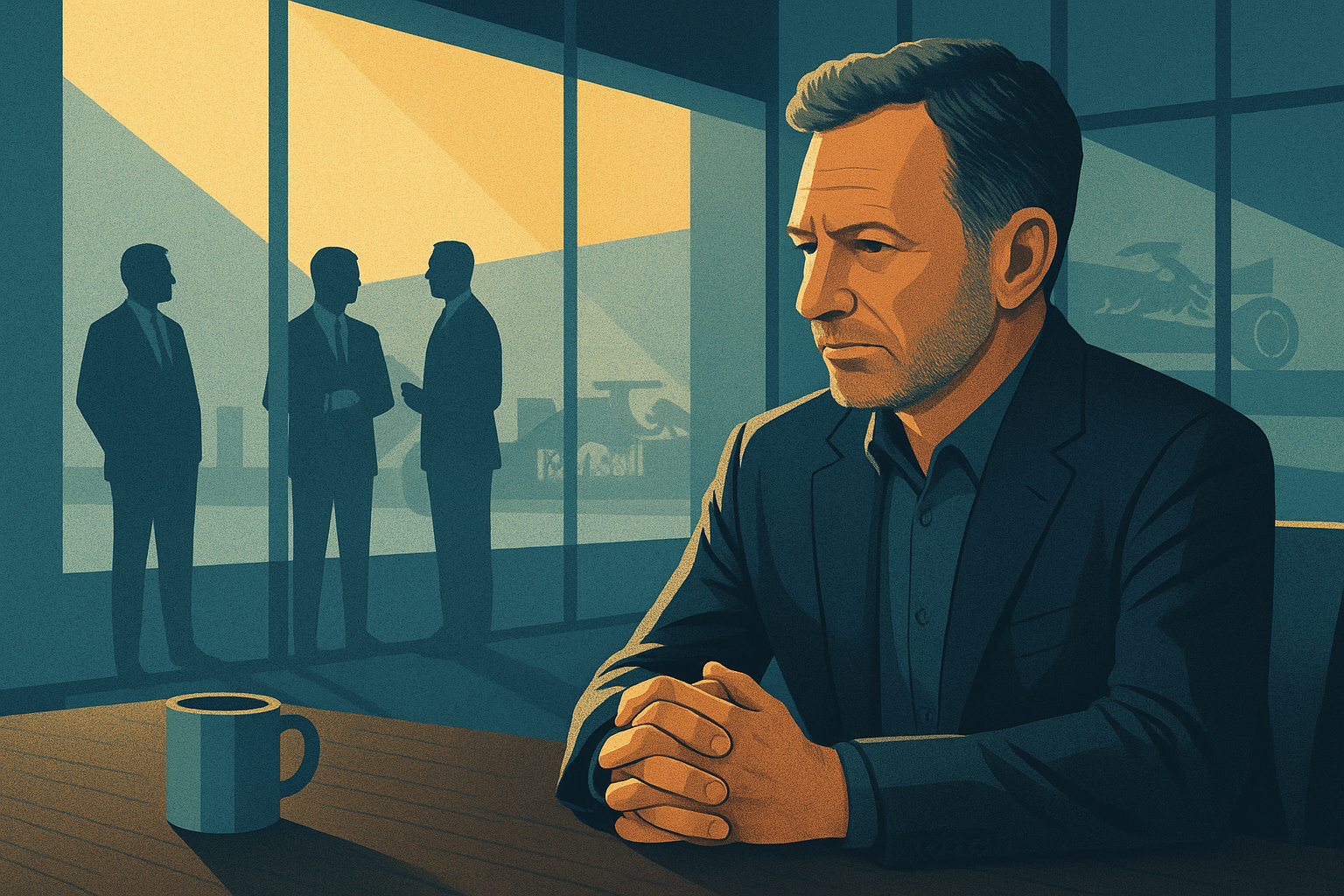Red Bull Racing’s recent decision to remove Christian Horner as team principal marks a significant shift at the top of one of Formula 1’s most successful teams. While the company has not publicly stated a specific reason for Horner’s departure, the move follows a period of heightened scrutiny for both Horner and the team — and highlights the complex risks business leaders face when executive conduct comes into question.
Earlier this year, Horner was subject to an independent investigation after allegations of “inappropriate behaviour” from a Red Bull employee. The investigation ultimately cleared Horner, and an appeal was dismissed, but the incident nonetheless drew sustained media attention and public speculation. In the months since, Red Bull’s on-track performance faltered, and the issue remained in the headlines. Whether or not these factors directly contributed to the decision to end Horner’s 19-year tenure, the episode underscores how unresolved scrutiny can continue to shape an organisation’s direction.
For executives and boards, the case highlights the broader organisational risks associated with leadership scandals — especially when external perception and internal stability are at stake. High-profile exits, regardless of their stated rationale, routinely test the foundations of even the most established businesses.
The ripple effects of public scrutiny at the top —
When allegations or investigations centre on a senior executive, companies face risks that go far beyond the individual. Shareholder confidence can waver, funding and credit ratings may come under pressure, and operational disruption becomes a real threat. In Boeing’s case, the fallout from its leadership crisis cost the firm nearly US $9 billion and forced a change at the top to restore credibility. At Uber, executive scandal prompted major board reforms and ultimately a reset of company culture and governance.

Sponsors and partners, too, may reconsider their relationships, while employee morale can suffer as uncertainty and media attention linger. PwC’s 2023 Global Crisis & Resilience Survey found that 76% of organisations facing a major crisis reported disruption to critical operations. Even when allegations are not upheld, the process itself can leave a lasting mark.
Boards responding to executive-level scrutiny now employ a series of well-established steps. Immediate action — such as suspension or leadership transition — may be necessary to ring-fence operations and protect the business. Independent investigations, often carried out by third-party advisors, are standard practice to ensure credibility.
Transparent communication with stakeholders is key. Early, clear messaging — outlining what is known, what is being done, and when updates will follow — is critical to maintaining trust. Starbucks, for example, responded to a high-profile incident by publicly closing stores for anti-bias training and sharing its plans openly.
Subsequent reforms often follow, from governance policy changes to revised executive contracts. Uber’s board overhaul and McDonald’s enforcement of conduct-linked pay and claw-back provisions are recent examples of how organisations adapt in the aftermath of scrutiny.
Resilience as a board-level priority —
Business resilience — once viewed as a compliance function — is now recognised as a strategic asset. According to PwC, 87% of companies plan new crisis-management investment in the coming two years, and one in three have assigned direct oversight to the CEO.
- Maintaining clear escalation protocols for executive suspension or removal
- Retaining independent investigative and advisory capacity
- Regularly scenario-testing crisis communication plans
- Strengthening succession and interim leadership options
Red Bull’s decision to part ways with Christian Horner, after months of sustained attention and investigation, reflects a broader trend in modern governance. Today’s boards must weigh loyalty, transparency, and brand reputation — even when no formal findings of wrongdoing are made. For executives across sectors, the message is clear: scrutiny at the top can have far-reaching effects, and organisational resilience depends on readiness, decisiveness, and trust.




